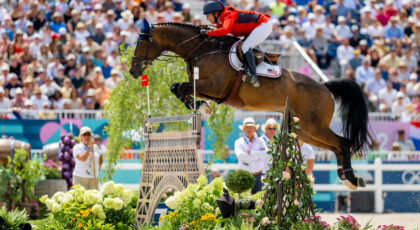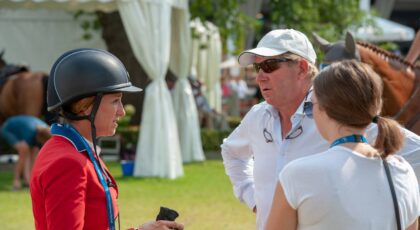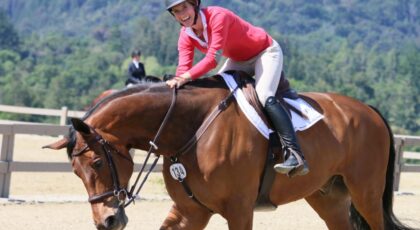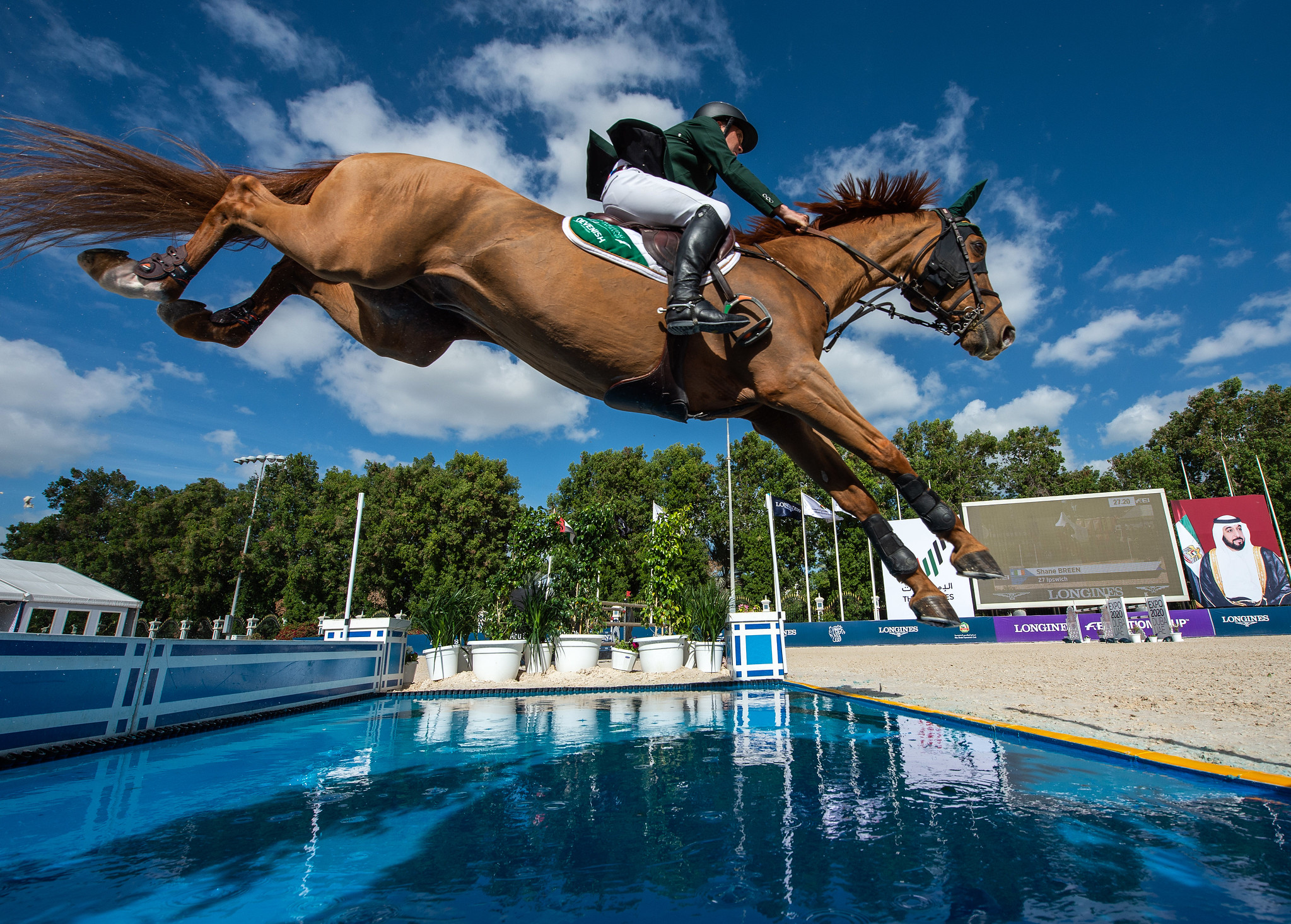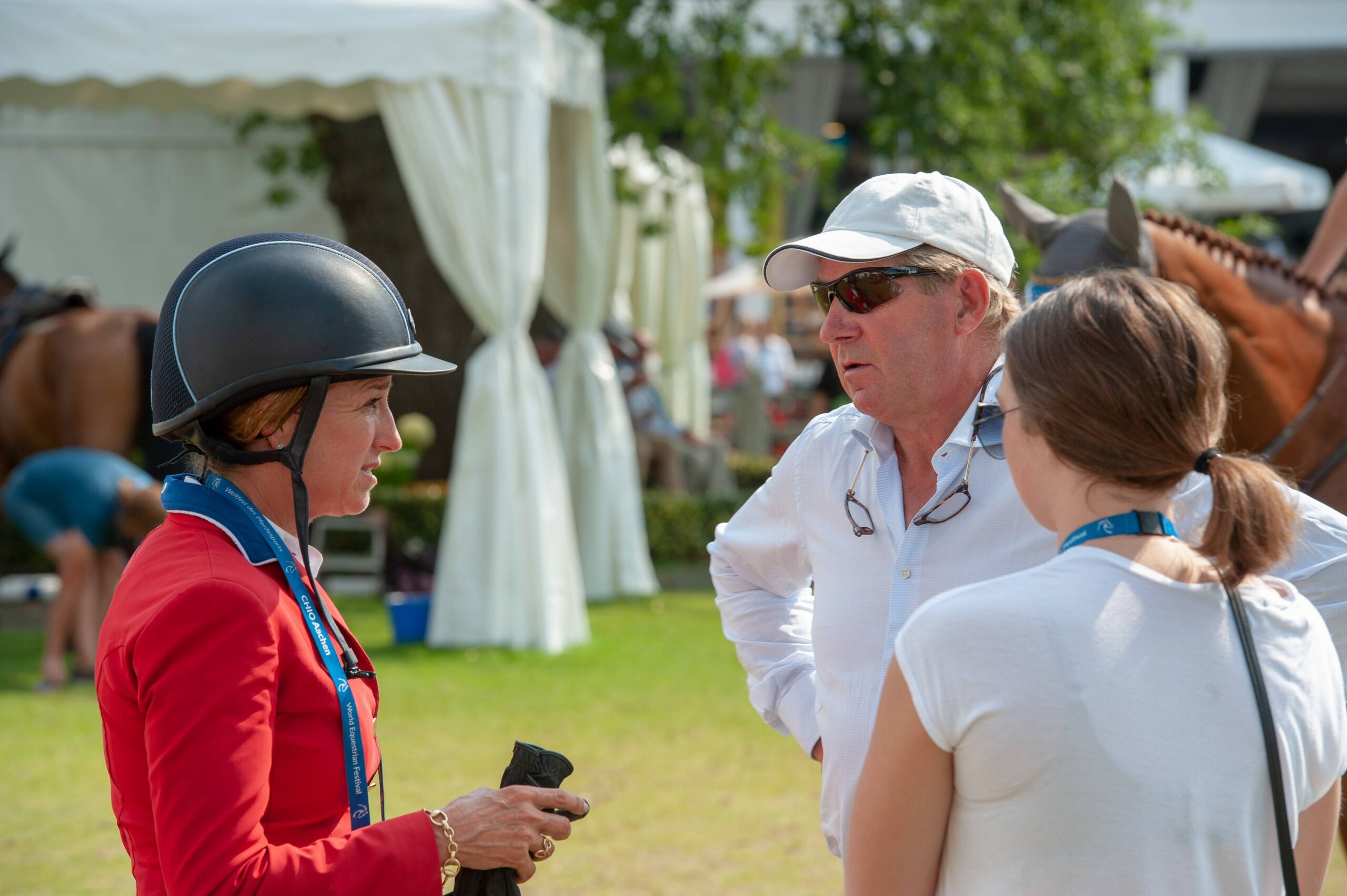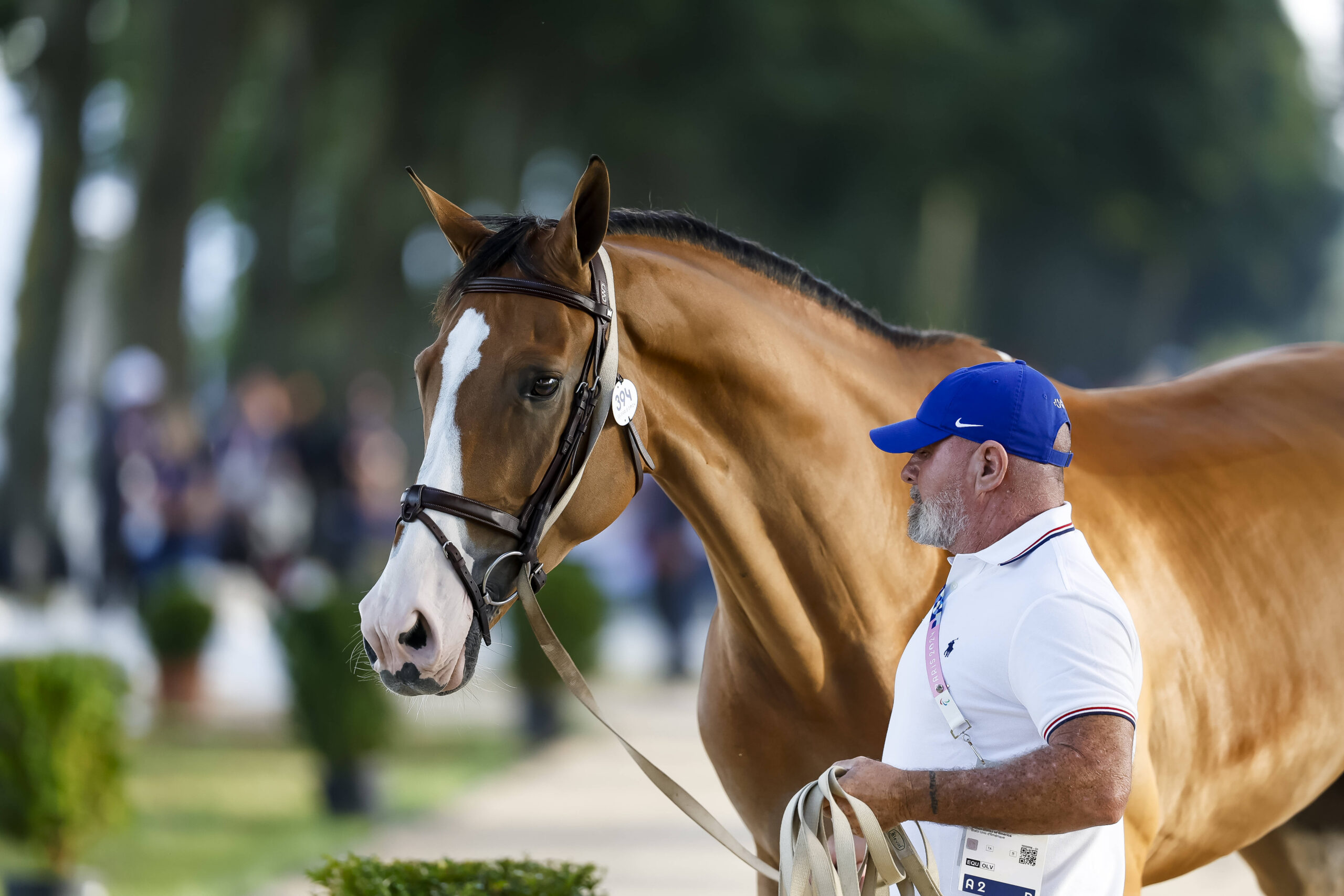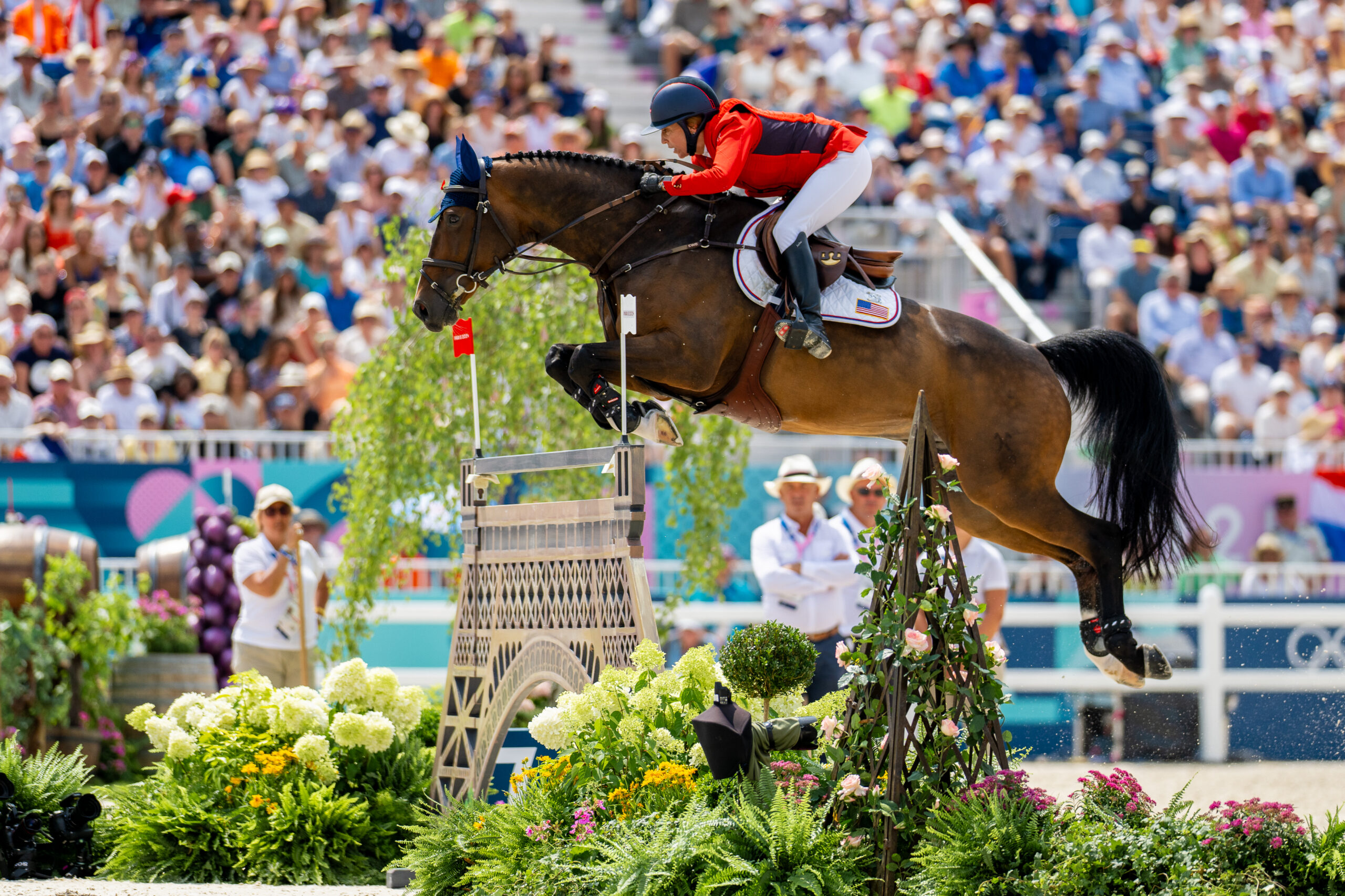Q: I’m shopping for my first horse. I’ve been warned about sellers who misrepresent their sale horses—what types of situations should I be wary of during my search?
A: I’m glad that you’re being cautious during this process, because dishonest sales practices occur in the equine industry more than we care to admit. Deceptive practices can occur at all levels of horse sales, and unfortunately, a first-time horse buyer can fall victim because he or she lacks experience in spotting the warning signs.
If you have not already enlisted the help of a knowledgeable professional, I highly recommend you take that step first. A trainer who knows your riding abilities and goals for your new horse can help you make a smart purchase and identify any potential red flags along the way. An experienced professional and competent trainer can help prevent first-time horse owners from letting their emotions and excitement interfere with sound decision-making when deciding upon which horse makes the smartest purchase. A professional can help you weigh the pros and cons with a potential new horse, answer your questions, and guide you into making a good decision.
As you get started with the horse-shopping process, here are a few situations that could set off alarm bells:
The deal is too good to be true
You are scouting sales ads and discover what appears to be the perfect horse for you. A 16.2-hand gelding with show experience, auto changes, and a price way below your budget. Seems like a great deal, right? It could very well be…
Or it could be a warning sign that maybe there is an issue with the horse that the seller is not disclosing. The horse may have a lameness issue, a behavioral problem, or be very difficult for an amateur to ride, among other things.
If you are interested in trying the horse, make sure you conduct some investigation into the horse’s show record to see what the horse showed in, how the horse performed, and who rode him. If considering a purchase of a horse with a sale price that seems too good to be true, consider obtaining the horse’s veterinary history, and have your veterinarian perform a thorough pre-purchase examination.
It is possible that you have lucked out and the horse is being sold below purchase price for reasons unrelated to the horse’s quality or soundness.
Horse is already tacked up when you arrive
Since this is your first time purchasing a horse, try to arrive when the horse is taken from its stall or pasture, being groomed, and tacked up. Being present during these activities may provide a better sense of the horse’s attitude and suitability for you.
If you arrive and the horse is already tacked up in the cross-ties, there is a chance the seller could be hiding a potential behavioral issue. Perhaps the horse does not want to be caught in the pasture, or kicks and bites when being groomed and tacked up. If the horse is looking a bit sweaty or winded, it may be a sign that the seller lunged the horse before you arrived to “take the edge off.”
On the other hand, a horse ready to be ridden when you arrive may not be a negative sign at all, but evidence of a motivated seller intent on having the horse properly turned out and ready for a potential buyer to ride.
If you like the horse after having tried him, observe the horse and its personality as it is being untacked and bathed or groomed. If you are still interested in purchasing the horse, you can always request a second ride and arrange to be present when the horse is groomed and tacked up.

Trouble with the vet check
A pre-purchase exam is a crucial part of the buying process. Typically, a buyer will hire a veterinarian who is unfamiliar with the horse, giving them the opportunity to perform an objective analysis.
Try to avoid using the seller’s veterinarian to perform your pre-purchase exam. Using your own veterinarian will help ensure that the examination and evaluation are being performed by an independent professional with no pre-existing loyalty to the seller. If your veterinarian cannot perform the examination try to retain a well-qualified veterinarian that does not have any pre-existing relationship to the seller.
Also, when choosing a veterinarian for the pre-purchase exam, try to select a veterinarian that is familiar with the breed, sport, or use for which the horse is being purchased. Providing the veterinarian with the horse’s intended use can be extremely helpful in terms of the information you can gain from the examination. It is vital to know whether the horse you want to purchase will be suitable to meet your needs.
Quick decision-making
Purchasing a horse, especially your first horse, should never be a rushed process. Taking your time and having your questions answered can help ensure that the horse is suitable and the right fit. Don’t let a seller try to talk you into making a quick decision.
A seller may mention there is another buyer waiting to try the horse if you don’t, but they want to give you “first dibs.” Or maybe they say they have someone coming to look at the horse later that day or tomorrow, and that “this horse won’t be on the market for long!”
A seller may be pushing you to make a speedy decision to avoid having you ask for a vet check (don’t skip that!) or a second chance to try out the horse (advisable whenever possible). Never allow yourself to be pressured into making a hasty choice and buying your first horse without a veterinarian examination or a pre-purchase trial.
If you think that the horse is the right match for you, make every effort to take the horse on a short trial at your barn prior to purchase. This opportunity will enable you and your trainer to evaluate the horse in a different environment without the seller being present to control the situation.
It is also advisable to enter into a written agreement before engaging in a trial period to ensure that both you and the seller clearly understand the terms of the trial. Items to consider putting into the agreement include length of the trial, responsibility for transport, limitations on what the horse may do on the trial, insurance coverage, and the timing of a pre-purchase examination if you want to purchase the horse after the trial period ends.

Key takeaways
These are just some of the potential issues you’ll want to be aware of during your horse search—and sometimes, they can be deal breakers.
The best thing you can do is enlist the help of a trusted professional or experienced horseman who can guide you along the way. Go with your instincts. If you get an unsettled feeling about a horse or a situation, it might be a sign to move on and look elsewhere.
When you find a horse who seems like a great match, try to get to know the horse as well as you can before you make a decision during a trial period or a return visit to the seller’s barn. Schedule a pre-purchase exam with an objective veterinarian, and whatever you do, don’t feel rushed to make a quick decision. Best of luck!


 August 5, 2020
August 5, 2020 
















